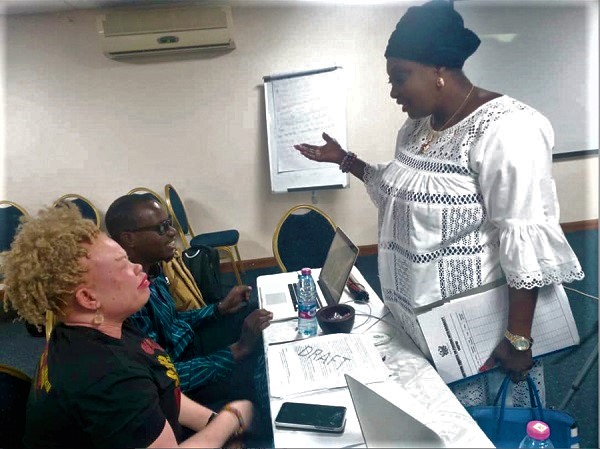
Sanction institutions with buildings inaccessible to PWDs — AdvocatesSanction institutions with buildings inaccessible to PWDs — Advocates
Advocates for the rights of persons with disabilities (PWDs) marked the Constitution Day with a call on duty bearers to enforce the PWD Act, 2006 (Act 715) to promote the rights of disabled persons.
In particular, they have recommended stiffer punishment for businesses and institutions that have failed to make their buildings accessible to PWDs, in accordance with the provisions of Section Seven of the act.
The activists included the Deputy Minister for Gender, Children and Social Protection, Mrs Freda Prempeh; a lawyer at the Commission on Human Rights and Administrative Justice (CHRAJ), Ms Yaa Fosuah Asare, and the Chairman of the Advocacy Committee of the Ghana Federation of Disability Organisations ((GFD), Mr Alexander Bankole Williams.
They argued that although Act 715 mandated occupiers of public buildings to make such facilities accessible to PWDs, the law had been violated with impunity, for which reason enforcement must be the way forward.
Review committee
The advocates, who were speaking at a meeting of the technical committee for the review of Act 715 held in Accra yesterday, proposed punishment of 50,000 penalty units (GHc12 per unit) or one year imprisonment or both for offenders.
The meeting was organised by the National Council on PWDs to mark Constitution Day.
Present at the meeting was the Executive Secretary of the National Council on PWDs, Ms Esther Gyamfi, and other key advocates.
Enforcement
Mrs Prempeh stressed that it was time businesses and state institutions in particular were made to face the law for abusing the rights of PWDs in the area of accessibility to public premises.
She gave an assurance that the Gender Ministry would prioritise the amendment of the current PWD Act to make it more potent to protect the rights of PWDs.
Empowerment
For her part, Ms Asare said the National Council on PWDs needed to be empowered to go to court and ensure that non-compliant entities were closed down or forced to comply.
She stressed that ministries, departments and agencies (MDAs) which fell foul of the law must be dealt with first to deter others.
“The PWD Act that we are trying to review now gave a leverage that within 10 years after the coming into force of the law, all public places should comply and be disability-friendly.
It is more than 10 years since the law was passed in 2006, but most occupiers of public buildings have not complied,” she lamented.
Mr Bankole said the Council on PWDs must be decoupled from the Gender Ministry to empower the latter to better serve the interests of PWDs.
He also called on all stakeholders to collaborate to make the effort being made to review Act 715 successful, since that would be a major boost to the rights of PWDs.
Background
The technical committee for the review of the PWD Act was launched in November 2019, with the mandate to review Act 715 to comply with the United Nations (UN) Convention on the Rights of PWDs.
The committee was also required to prepare a legislative instrument (LI) to operationalise the act.
Members of the committee were drawn from the Ministry of Gender, Children and Social Protection, the Ministry of Local Government and Rural Development, the Department of Social Welfare, the Special Education Unit of the Ghana Education Service (GES), the Commission on Human Rights and Administrative Justice (CHRAJ) and the GFD.
The committee has, since its inauguration, drafted a proposed amendment to Act 715, for which reason the meeting was organised to review the second draft.

